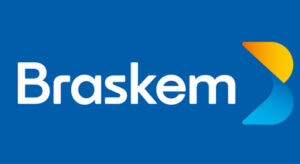Braskem is now using bio-attributed feedstock provided by Shell Chemicals
Camaçari, Brazil – Shell Chemicals recently started to supply Braskem with bio-attributed and bio-circular propylene feedstocks, based on a mass balance approach and independently certified by a third party.
Braskem will utilize such feedstocks for the manufacture of bio-attributed and bio-circular polypropylene enabling more sustainable options for growing consumer demand in the packaging, film, automotive, and consumer goods markets.
Mark Nikolich, Vice President of Olefins and Polyolefins, Braskem North America stated, “Braskem is a leader in the innovation and production of bio-based materials, and we continue to see demand grow for more renewable solutions in our markets. In January 2023, we communicated the evaluation of a Braskem-led project to produce bio-based propylene in the U.S . With today’s announcement, we will continue to focus our work on sources of sustainable propylene, in this case, bio-attributed and bio-circular, to support our polypropylene clients in meeting their carbon reduction and circularity goals. This is possible because of forward-thinking suppliers like Shell. Ultimately, we believe that these different renewable solutions are complementary and important steps forward as the plastics industry evolves to a more sustainable future. We will continue to develop and provide solutions to support our global clients in reaching their sustainability goals.”
Shell is replacing hydrocarbon feedstock with a bio-attributed and bio-circular feedstock in its propylene product, which has the potential to reduce greenhouse gases and contribute to a circular economy.
“Shell is proud to be working with Braskem to supply the bio-attributed and bio-circular feedstocks that go into the everyday products that support modern life. This deal further illustrates how Shell Chemicals is growing its portfolio of sustainable chemicals and, by using bio-attributed and bio-circular feedstocks, Shell is progressing its strategy to lower greenhouse gas emissions from its operations and to be a net-zero emissions energy business by 2050,” said Sean Clarry, Shell Chemicals’ Senior Vice President Commercial.
The recent collaboration between Shell and Braskem in Europe, aimed at enhancing the utilization of circular content in Braskem’s polypropylene production, reinforces Braskem’s commitment to achieving carbon neutrality and advancing its circular economy goals by 2050.
Shell has also set a target to reduce absolute emissions by 50% by 2030, compared to 2016 levels on a net basis. This covers all emissions in Scope 1, which come directly from its operations, and in Scope 2, from the energy Shell buys to run its operations, under its operational control.
Mass balance is an independent accounting process and widely used across the industry which enables Shell to attribute bio-circular and bio-attributed content to specific end products when produced with a mix of traditional and novel feedstocks. The process is independently verified by a third-party certification body.

